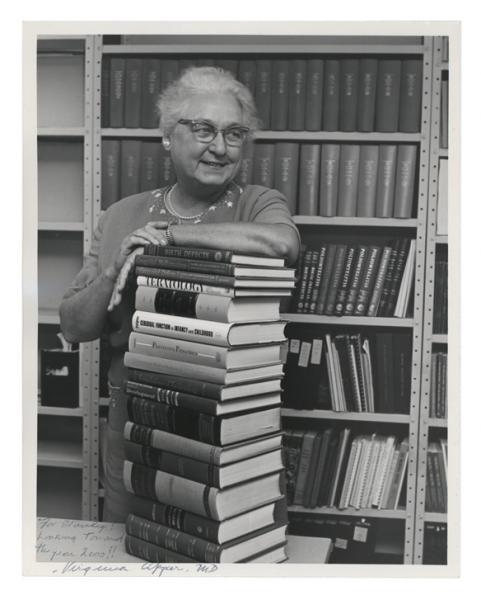Virginia Apgar, M.D. (Physician/Neonatology Pioneer)
 Virginia Apgar (7 June 1909– 7 August 1974) was an American physician who specialised in anesthesia. She was a leader in the fields of anesthesiology and teratology, and effectively founded the field of neonatology.
Virginia Apgar (7 June 1909– 7 August 1974) was an American physician who specialised in anesthesia. She was a leader in the fields of anesthesiology and teratology, and effectively founded the field of neonatology.
To the public, however, she is best known as the developer of the Apgar test, a method of assessing the health of newborn babies that has drastically reduced infant mortality over the world.
She graduated from Mount Holyoke College College of Physicians and Surgeons Columbia 1929, and the Columbia University College of Physicians & Surgeons in 1933.
She completed a residency in surgery at Columbia in 1937. However, she was discouraged from practicing surgery by Dr. Allen Whipple, the chair of surgery at Columbia. She further trained in anesthesia and returned to Columbia in 1938 as director of the newly formed division of anesthesia.
In 1949, Apgar became the first woman to become a full professor at Columbia P&S, while she also did clinical and research work at the affiliated Sloane Hospital for Women. In 1959, she earned a Master of Public Health degree from the Johns Hopkins School of Hygiene and Public Health.
In 1953, she introduced the first test, called the Apgar scale, to assess the health of newborn babies. It is administered one minute and five minutes after birth, and sometimes also at 10 minutes.
While Apgar was frequently the "first woman" or "only woman" in a department, to serve in a position, or win an accolade, she avoided the organized women's movement, proclaiming that "women are liberated from the time they leave the womb".
Apgar never married, and died on August 7, 1974, at Columbia-Presbyterian Medical Center.
Related Links:
Virginia Apgar on Wikipedia